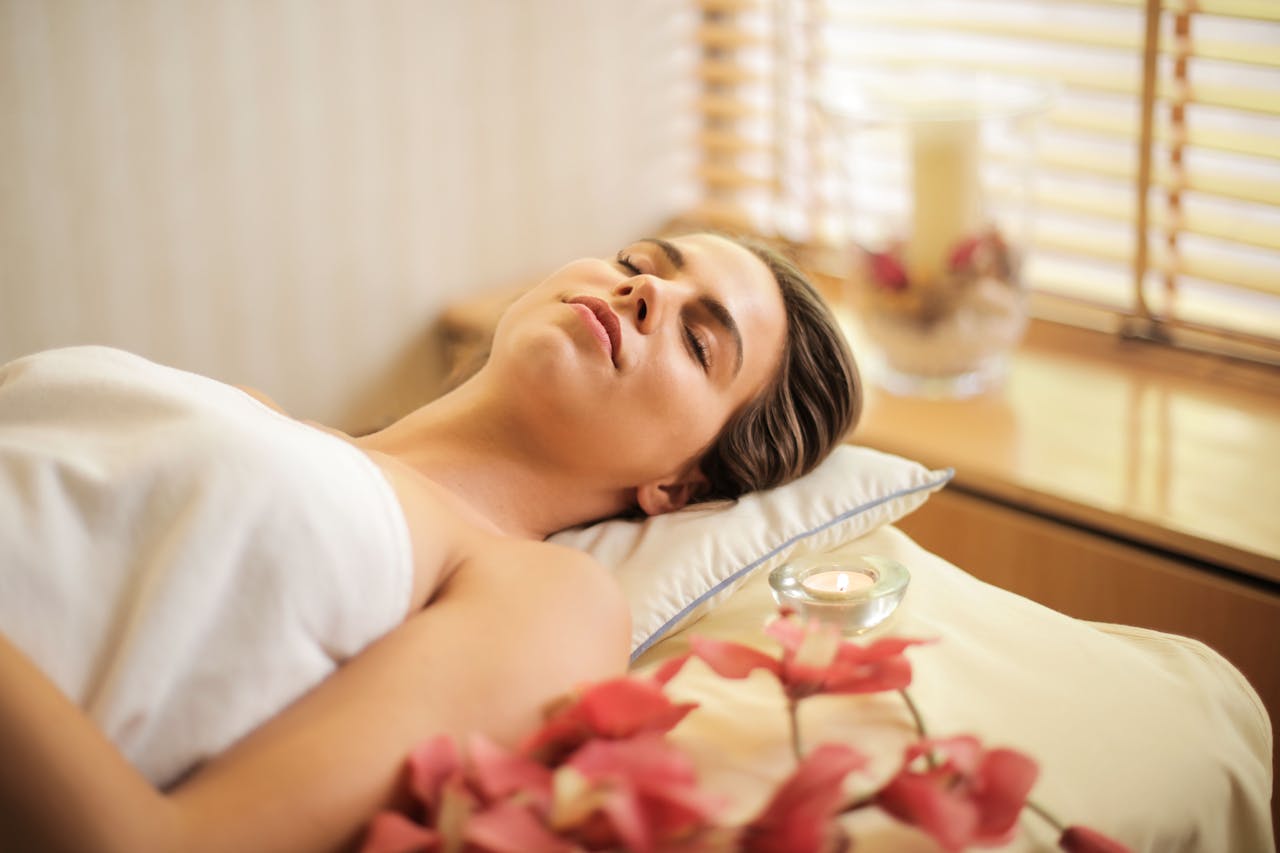Importance Of Self-Care Routines - Enhancing Productivity And Performance
Taking care of yourself is really important. When you take time for yourself, it helps you do better at everything else. That's why understanding the importance of self-care routines is key.
Author:Karan EmeryReviewer:Katharine TateFeb 19, 20245.6K Shares117.3K Views

The importance of self-care routinescannot be stressed enough in today's busy world. People are trying to balance work, family life, and everything else, so it's more important than ever to put themselves first.
This article looks at how self-care habits are very important for improving performance and efficiency. People can reach their full potential and be happier and more successful in many areas of their lives if they understand how important self-care routines are.
What Is Self-Care?
The term "self-care" refers to a variety of behaviors and pursuits that support one's mental, emotional, and physical health. It entails making conscious decisions to prioritize one's needs, take care of oneself, and keep a good balance in one's life.
This can involve things like working out, eating well, sleeping sufficiently, setting boundaries, meditating or practicing mindfulness, obtaining social support, pursuing hobbies or leisure activities, and getting help from a professional when necessary. Taking proactive measures to maintain general health and happiness, as well as acknowledging and respecting one's own needs, are all parts of self-care.
Types Of Self-Care
- Physical self-care -This involves activities that promote physical health and well-being, such as exercise, nutrition, sleep hygiene, and personal hygiene.
- Emotional self-care -Emotional self-care focuses on nurturing and managing one's emotional well-being. This may include practicing self-compassion, engaging in activities that bring joy and fulfillment, processing emotions through journaling or therapy, and setting healthy boundaries in relationships.
- Mental self-care -Mental self-care involves activities that support cognitive function, mental clarity, and overall mental health. This may include practicing mindfulness and meditation, engaging in creative pursuits, seeking mental stimulation through learning or problem-solving activities, and managing stress through relaxation techniques.
- Social self-care -Social self-care revolves around nurturing healthy relationships and cultivating a supportive social network. This may involve spending quality time with friends and loved ones, participating in social activities and hobbies, seeking support from others, and setting boundaries to protect one's social well-being.
- Spiritual self-care -Spiritual self-care focuses on nurturing one's spiritual or existential needs and finding meaning and purpose in life. This may include engaging in spiritual practices such as prayer, meditation, or religious rituals, connecting with nature, exploring existential questions, and engaging in acts of service or altruism.
- Professional self-care -Professional self-care involves activities that support one's professional well-being and career satisfaction. This may include setting boundaries between work and personal life, seeking opportunities for professional development and growth, advocating for oneself in the workplace, and practicing effective time management and stress reduction strategies.
- Environmental self-care -Environmental self-care centers around creating and maintaining a healthy and supportive physical environment. This may involve decluttering and organizing living spaces, spending time in nature, reducing exposure to environmental toxins, and advocating for environmental sustainability.
Every one of these types of self-care is important and should be prioritized at different times according to an individual's needs and circumstances; furthermore, they are complimentary and interdependent. One way to improve one's health and resilience is to practice holistic self-care.
Physical Dimension Of Self-Care
The physical aspect of self-care includes routines and actions that support the body's general health and well-being. It entails taking care of and preserving one's physical characteristics to maximize lifespan, energy, and health. The following are some essential elements of the physical aspect of self-care:
- Diet and nutrition -Eating a healthy, well-balanced diet is essential to self-care. Eating a range of foods high in vital nutrients, like fruits, vegetables, whole grains, lean meats, and healthy fats, is part of this. Maintaining optimal health and energy levels involves prioritizing hydration and reducing the consumption of processed foods, sugary snacks, and excessive caffeine.
- Exercise and physical activity -Exercise regularly is essential for physical health. Exercises like aerobics, strength training, flexibility, and mind-body techniques like tai chi or yoga not only increase physical fitness but also elevate mood, lower stress levels, and enhance cognitive performance.
- Sleep hygiene -A good night's sleep is necessary for optimum health and performance. Establishing a regular sleep schedule, coming up with a soothing bedtime ritual, maximizing the sleep environment (soft mattress, quiet, dark room), and avoiding stimulants like caffeine and gadgets before bedtime are all part of good sleep hygiene.
- Hygiene and personal care -Basic personal hygiene practices, such as regular bathing, dental care, and grooming, are integral to self-care. Maintaining cleanliness and attending to personal care routines not only promotes physical health but also contributes to feelings of confidence and self-esteem.
- Medical care and preventive health measures -Regular medical check-ups, screenings, and preventive health measures, such as vaccinations and health screenings, are essential aspects of self-care. Seeking medical attention when needed, adhering to prescribed treatments, and managing chronic health conditions effectively contribute to overall well-being and longevity.
- Rest -Incorporating periods of rest into daily life is crucial for allowing the body to recharge and recover from physical exertion and stress. Activities like meditation, deep breathing exercises, massage, and leisure pursuits promote relaxation and rejuvenation.
Importance Of Self-Care Routines
Applying the importance of consistency to self-care routines highlights how important it is to develop consistent routines and habits to support resilience and general well-being. Maintaining self-care routines consistently means committing to giving self-care activities priority regularly, regardless of obstacles or outside events. Here's why self-care requires consistency:
Establishing Habits
The formation and maintenance of healthy habits depend on consistency. When people regularly do things for themselves that benefit them, like exercising, meditating, or keeping a journal, they strengthen the brain connections that are linked to these actions, which makes them second nature. Regular exercise fortifies routines, making them more manageable over time.
Building Momentum
Repetition creates steam, and steam turns into outcomes. People are more likely to keep putting their health first when they regularly participate in self-care practices, which provide a sense of achievement and development. Improving one's physical health, mental clarity, and emotional resilience can be achieved by tiny, consistent efforts over time.
Stress Reduction
Maintaining regular habits of self-care can protect you from the negative effects of stress and burnout. A sense of calm and emotional equilibrium can be achieved via regular practice of relaxation techniques like deep breathing exercises, mindfulness meditation, or spending time in nature. These practices assist control stress hormones. Reducing the harmful effects of chronic stress on health and increasing resilience are both achieved through consistent stress management methods.
Maintaining Balance
Individuals can keep their lives in balance by consistently practicing self-care. Individuals can avoid mental, physical, and social weariness and burnout by making time and effort for self-care activities regularly. A sense of balance and harmony can be achieved in one's job life, personal life, and overall health through consistency.
Promoting Long-Term Health
To promote health and vitality over the long term, it is crucial to consistently participate in self-care habits. Individuals consistently invest in their health and prevent future health problems by maintaining a balanced diet, exercising regularly, getting enough sleep, and attending medical check-ups. Health outcomes and quality of life can be significantly improved with small, consistent measures implemented over time.
Cultivating Self-Discipline
Developing self-control and discipline requires regular self-care practices. A person's ability to bounce back from setbacks and avoid temptations that threaten their health can be enhanced by making self-care a consistent priority. Maintaining a routine of self-care helps people develop self-discipline and gives them the agency to make positive lifestyle choices that are in line with their beliefs and aspirations.
Importance Of Self-Care Routines - FAQ
Why Is Self-Care Important For Youth?
Practicing self-care at a young age allows kids to create a foundation that will benefit them as adults. Practicing self-care allows your child to develop healthy habits that they can benefit from in the future. Your child will be able to become more independent and understand how to take care of themselves.
Why Is Self-Care And Self-Awareness Important?
With awareness of self, you can regulate your interior condition, which has a ripple effect through your behavior and actions. It is a practice that can challenge your thoughts, your behavior, and your sense of self. When done consistently, you are better able to regulate your emotions and responses.
What Is The Importance Of Self-Care And Aging?
Self-care can help you feel happier, have more energy, and cope with stress better. Seniors' risk of heart disease, stroke, and cancer can all be decreased by practicing self-care. Additionally, it can offer your life meaning and purpose.
Final Thoughts
The importance of self-care routines in enhancing productivity and performance cannot be ignored. By investing time and effort into self-care practices, individuals can reap numerous benefits, including increased energy levels, improved focus and concentration, better stress management, and overall well-being. Incorporating self-care into daily routines is not only essential for personal health and happiness but also for achieving optimal performance in all areas of life.

Karan Emery
Author

Katharine Tate
Reviewer
Latest Articles
Popular Articles
